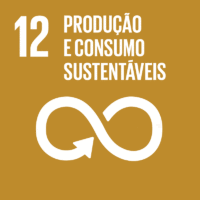Ciência_Iscte
Publicações
Descrição Detalhada da Publicação
Título Revista
Journal of Cultural Heritage Management and Sustainable Development
Ano (publicação definitiva)
2024
Língua
Inglês
País
Reino Unido
Mais Informação
Web of Science®
Scopus
Google Scholar
Esta publicação não está indexada no Overton
Abstract/Resumo
Purpose – Digital communication and social media have an increasing importance in society and in tourism
boosting. This study aims to analyse the role of digital marketing in the destination image and visitor loyalty of
historic sites.
Design/methodology/approach – Using a mixed-method approach combining survey data from 318
respondents and three in-depth interviews. Using structural equations modelling results reveals experience,
satisfaction, image and loyalty are concepts to be considered by the destinations’ digital marketing promotion,
as well as the increasing use of digital marketing by tourists, in the sense that tourists are increasing the habit
of checking the opinion of others before scheduling their trip and gives them more importance, and a growing
importance is given by tourists to the web/social networks of places they intend to visit.
Findings – This study contributes to the theory on tourism digital marketing which can be transposed to
organizations management in order to encourage discussion on the processes of capture, retention and loyalty
of target audiences.
Research limitations/implications – To enhance the importance of digital marketing in the process of the
tourist development of the city, it is fundamental to define a clear strategy for attracting and responding to the
greatest demand from cultural tourists who are increasingly interested in actively participating in learning
experiences.
Practical implications – The results show that digital communication and social media have an increasing
importance in society and in tourism boosting and economy recovery.
Social implications – The paper presents digital marketing as a possible factor in tourism development and
social inclusion, advancing practical measures aimed at social justice through a fairer distribution of tourism
revenues and the defence of historic centre residents’ way (i.e. Barcelos’), and quality of life.
Originality/value – The authors suggest the development of a strategic digital marketing plan applied to the
development and promotion of tourism in the city of Barcelos (Portugal), to complement the research presented
here, thus contributing with a more practical perspective of the subject under study.
Agradecimentos/Acknowledgements
--
Palavras-chave
Digital marketing,Historic sites management,Destination marketing,Destination image,Visitor loyalty
Classificação Fields of Science and Technology
- Economia e Gestão - Ciências Sociais
Contribuições para os Objetivos do Desenvolvimento Sustentável das Nações Unidas
Com o objetivo de aumentar a investigação direcionada para o cumprimento dos Objetivos do Desenvolvimento Sustentável para 2030 das Nações Unidas, é disponibilizada no Ciência_Iscte a possibilidade de associação, quando aplicável, dos artigos científicos aos Objetivos do Desenvolvimento Sustentável. Estes são os Objetivos do Desenvolvimento Sustentável identificados pelo(s) autor(es) para esta publicação. Para uma informação detalhada dos Objetivos do Desenvolvimento Sustentável, clique aqui.

 English
English



